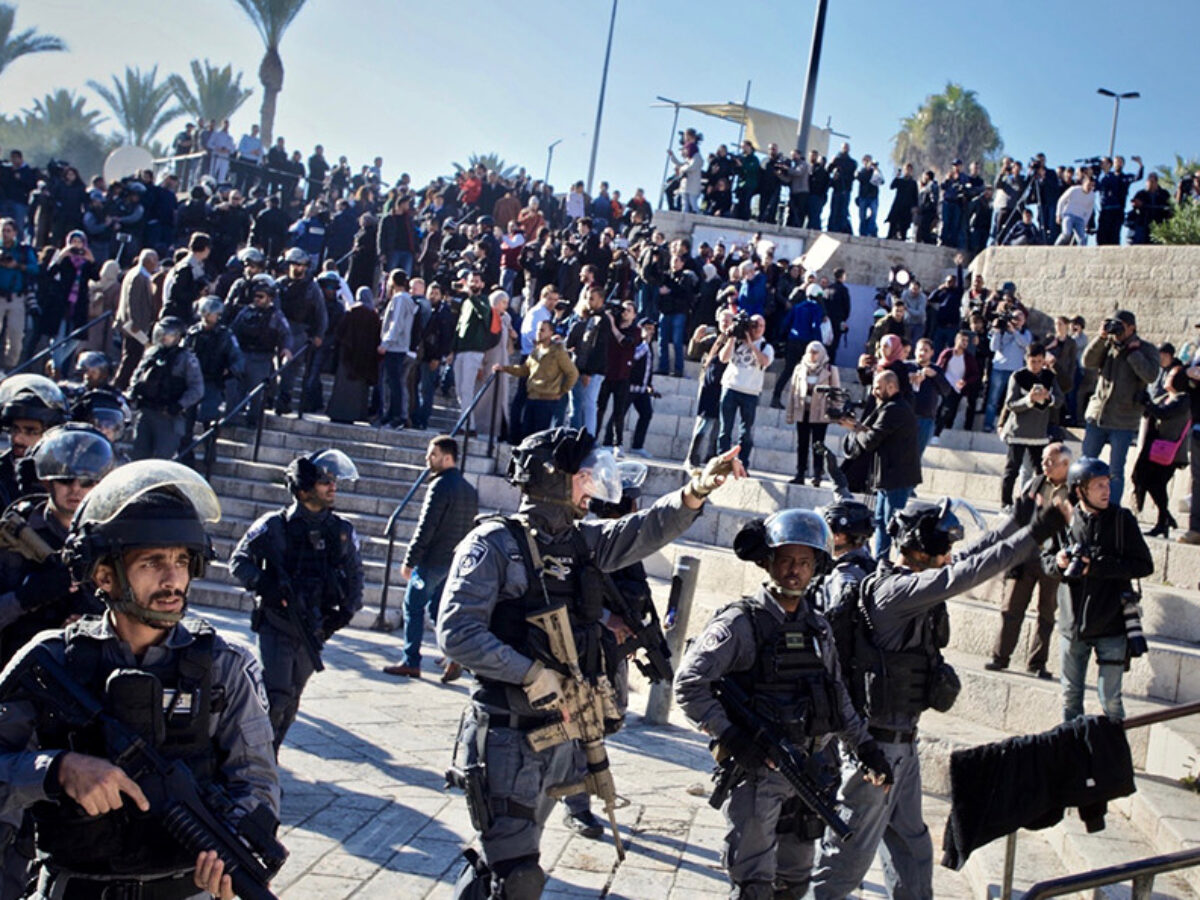The current situation:
The deadly violence against Palestinians continue by the Israelis. Israeli Police has entered Mosque Al-Aqsa and has killed many innocent Palestinians in this holy month of Ramadan, at the holy place. Protests have taken place in Gaza as Israeli raided the Mosque calling out the Arab and the whole international community for help. The violation of human rights has seen to be flared up by the Israelis in the last two months of 2022 (March and April). Israel has also carried out air raids in the central Gaza Strip. It is for the second time in the two weeks that Israel is attacking.

Israel-Palestine Conflict under a legal perspective:
According to the Resolution 181, adopted by United Nations General Assembly in 1947, led to the creation of two independent states in the territory of Palestine. One, the Jewish state of Israel, other the Arab state of Palestine.
Article 1 of the Montevideo Convention states “the state as a body of international law should possess the following characteristics:
A permanent population
A defined territory
Government
Sovereignty and Capacity to enter into relations with other states
Israel and Palestine both attained these characteristics but the sovereignty of Palestine has been compromised after the Israel’s creation. Palestine does have a definitive and permanent population and Palestinians reside in both, the West Bank and the Gaza Strip. It even has the government but still the Israel’s violations and occupation in the Palestine’s territory hurt its sovereignty. This theory of state supports for Palestinian claims to statehood and Palestine meets the criteria of statehood if other states recognize its statehood. Such a formal acknowledgement may have come in the form of the UNGA’s 2012 resolution on the status of Palestine’s statehood. The resolution received 138 votes in favor, 9 against, and 41 abstentions. In result the Palestine was granted non-member observer state status in the United Nations.
The development of Israeli settlements in the Israeli-occupied areas is considered illegal by the international community for violating Article 49 of the Fourth Geneva Convention and international declarations. The Fourth Geneva Convention is applicable to the Israeli-occupied areas, according to the United Nations Security Council, the United Nations General Assembly, and the International Committee of the Red Cross, the International Court of Justice, and the High Contracting Parties to the Convention. Israeli settlements in the West Bank, East Jerusalem, and the Golan Heights are considered illegal under international law.

Conclusion:
International community and the Muslim world are also against the Israeli’s settlements and violations of international law and human rights, but no legal action has ever been taken. Protests against the Israeli’s violations take place in many states but, the international community has always given a muted response because of its own parochial interests. Yet, Israel continues to illegally violate human rights and other international legal decisions even without any sanctions. This shows the International community’s failure of enforcing UN resolutions, in the Israeli-Palestinian conflict. It lacks to provide protection to Palestinians nor can it guarantee justice for them. This repeated failure of enforcement questions the precedence of UN Charter. Thus, the conflict will not transform towards de-escalation.

Research Associate, Pakistan House



